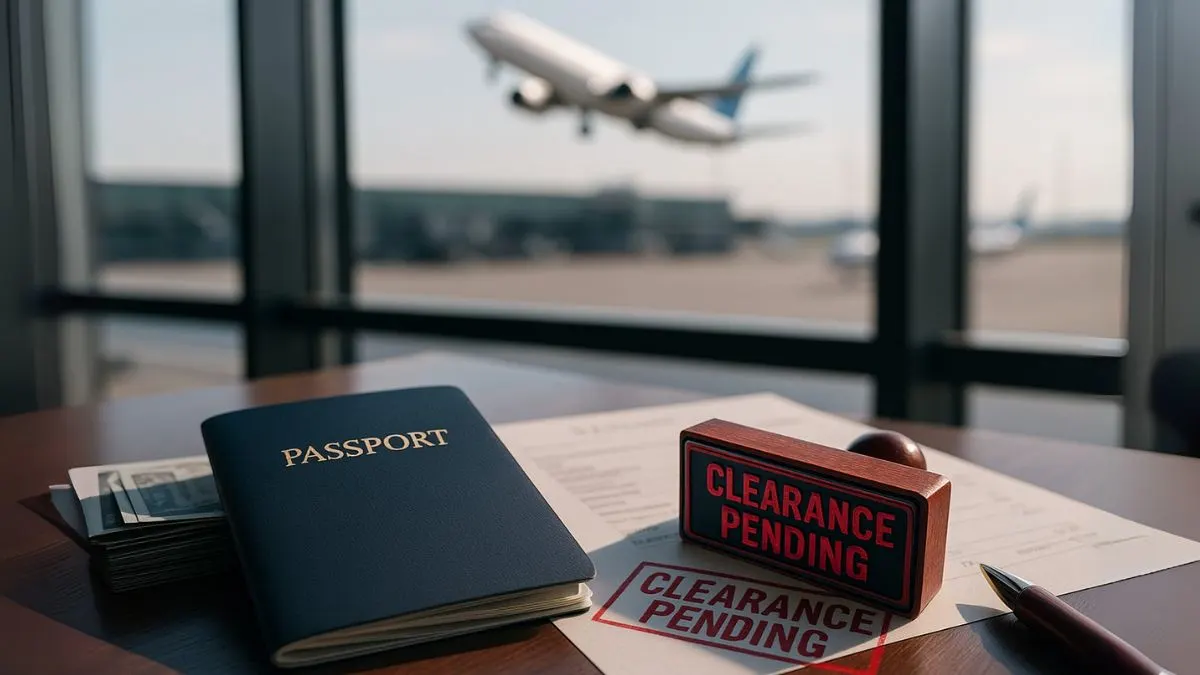
When you plan to leave India for an extended period, taxation may not be the first thing on your mind. But under Indian tax laws, certain individuals cannot simply pack their bags and leave. They must first obtain an Income-tax clearance certificate as per Section 230 of the Income Tax Act. This requirement applies to every person, who is domiciled in India at the time of his departure from India and ensures that all outstanding tax obligations are settled before departure.
In this article, we will break down what Section 230 means, who it applies to, and how you can comply with it without last-minute hassles.
What is Section 230 of the Income Tax Act?
Section 230 is a safeguard in Indian tax legislation aimed at preventing tax evasion by individuals leaving the country. It relates to obtaining an income-tax clearance certificate from the tax authorities before departure. The primary intent is to make sure that no person with outstanding tax dues escapes Indian jurisdiction without settling their liabilities.
This law is not new—it has been part of the tax compliance framework for years, evolving over time with amendments. The focus is simple:
- Protect government revenue.
- Ensure taxpayers meet their obligations before exiting India."
Who Needs to Obtain an Income-tax Clearance Certificate?
The provision applies to every person, who is domiciled in India at the time of his departure from India & intends to leave for more than a short trip. The requirement is more stringent for individuals leaving for employment, business, or extended stay abroad.
However, there are some exemptions. For example, in the past, diplomats, government officials, and certain categories of travellers have been exempted from this clearance requirement, provided they meet specific conditions. But for most professionals, business owners, and high-net-worth individuals, Section 230 requires an individual to obtain a tax clearance certificate before departure.
Why Does This Requirement Exist?
The logic is straightforward. If a taxpayer leaves the country without paying taxes or without providing a means for the tax department to recover dues, collection becomes extremely difficult. This provision ensures:
- Tax compliance – Outstanding liabilities are cleared.
- Legal accountability – Individuals declare their income honestly.
- Government assurance – No pending proceedings or assessments remain unattended.
Also Read: The Retirement Payout Exemption You Can’t Afford to Ignore
Documents Required for Income-tax Clearance Certificate
If you fall under the ambit of Section 230, you’ll need to prepare & submit certain documents, such as:
- PAN card copy.
- Passport copy.
- Proof of travel (tickets, itinerary).
- Last three years’ income tax returns.
- Proof of tax paid (Form 26AS, challans).
- Declaration of no pending tax liabilities.
These documents enable the assessing officer to verify your tax compliance before granting the certificate."
The Application Process – Step-by-Step
- Determine Applicability
First, assess whether you are legally required to get a tax clearance certificate. This depends on your residential status, nature of departure, and employment/business plans abroad. - Prepare Documentation
Gather all financial and personal identification documents as listed above. - Submit Application
Approach your jurisdictional Assessing Officer with the application in the prescribed form. Some regions may allow partial digital filing. - Verification by Tax Department
The officer checks your tax records to ensure there are no arrears, pending assessments, or undisclosed income. - Grant of Certificate
If everything is in order, you’ll receive the Income-tax clearance certificate.
Penalties for Non-Compliance
Failure to comply with Section 230 can result in:
- Prohibition from leaving India until clearance is obtained.
- Legal notices and proceedings for tax recovery.
- Reputational damage for professionals and business owners.
Immigration authorities at the airport can stop you from boarding if the clearance requirement has not been met.
Also Read: Understanding Additional Depreciation for Businesses
Practical Scenarios
Case 1: Business Owner Leaving for Overseas Expansion
A business owner, domiciled in India, plans to relocate to Singapore to set up a subsidiary. As per Section 230, he must first obtain an income-tax clearance certificate to ensure no pending tax dues exist in India.
Case 2: Employee Relocating for Foreign Assignment
An Indian IT professional is deputed to the USA for two years. While he is still on the payroll of the Indian entity, his long-term departure triggers the requirement to seek clearance.
Recent Developments & Amendments
While earlier versions of the law had broad applicability, over the years, the requirement has been narrowed to focus on individuals with potential tax liabilities. However, the core requirement of Section 230 still applies in situations where the tax department deems it necessary for revenue protection.
Why You Should Plan Early
Obtaining this clearance is not an overnight process. It may take several weeks for verification & issuance, especially if you have multiple sources of income or complex tax records. Start the process well before your travel date to avoid disruptions.
Also Read: The Hidden Clause on Property Income
Key Takeaways
- Section 230 of Income Tax Act ensures no one leaves India without clearing tax dues.
- It applies to every person, who is domiciled in India at the time of his departure from India in specific cases.
- The provision relates to obtaining an income-tax clearance certificate.
- Requires an individual to obtain a tax clearance certificate before leaving for an extended period.
- Non-compliance can lead to travel restrictions & legal action.
If you are planning to leave India and are unsure about whether Section 230 applies to you, it’s best to consult a tax professional. Compliance is always easier than facing last-minute legal or travel issues.
💡 Want to avoid last-minute tax clearance headaches before leaving India? Check out our expert tax compliance services on Callmyca.com — because smooth travel starts with smooth paperwork.











